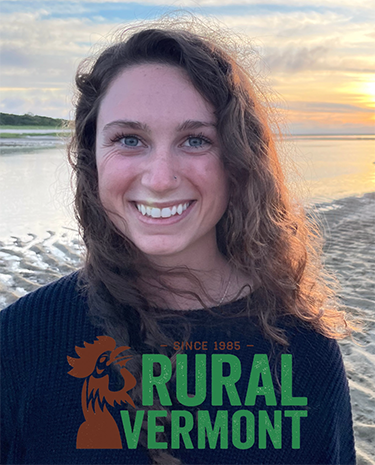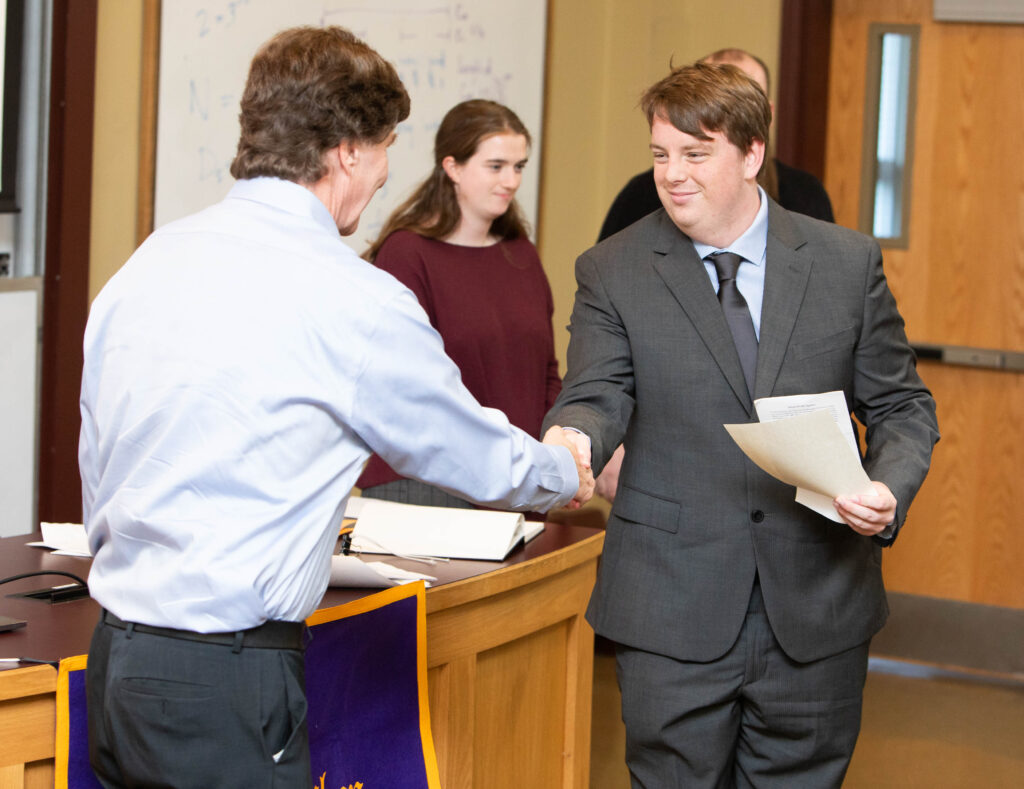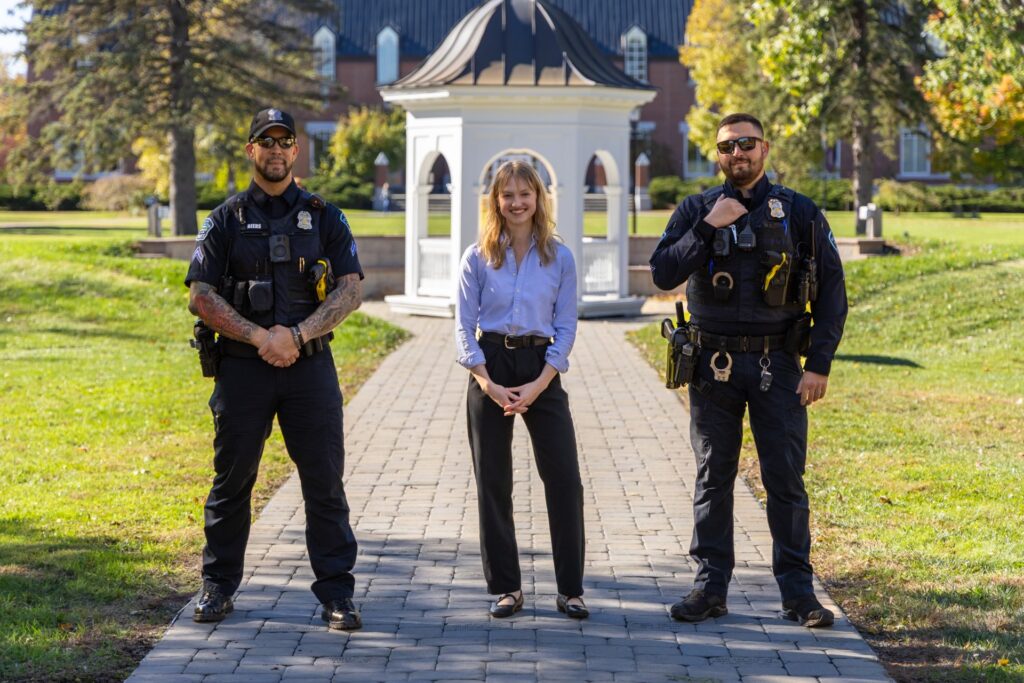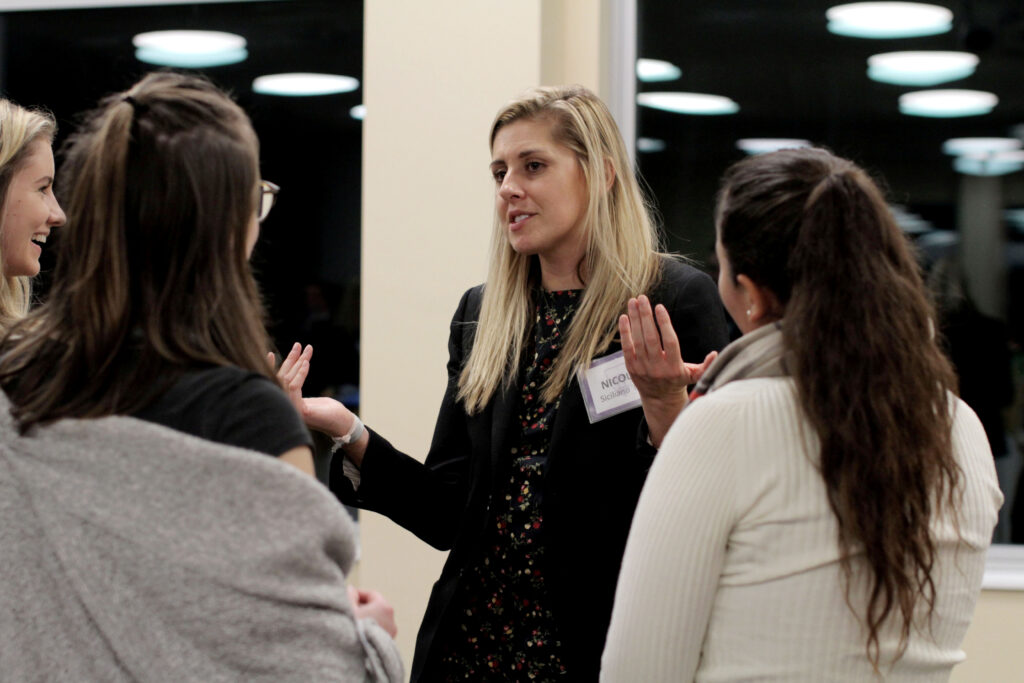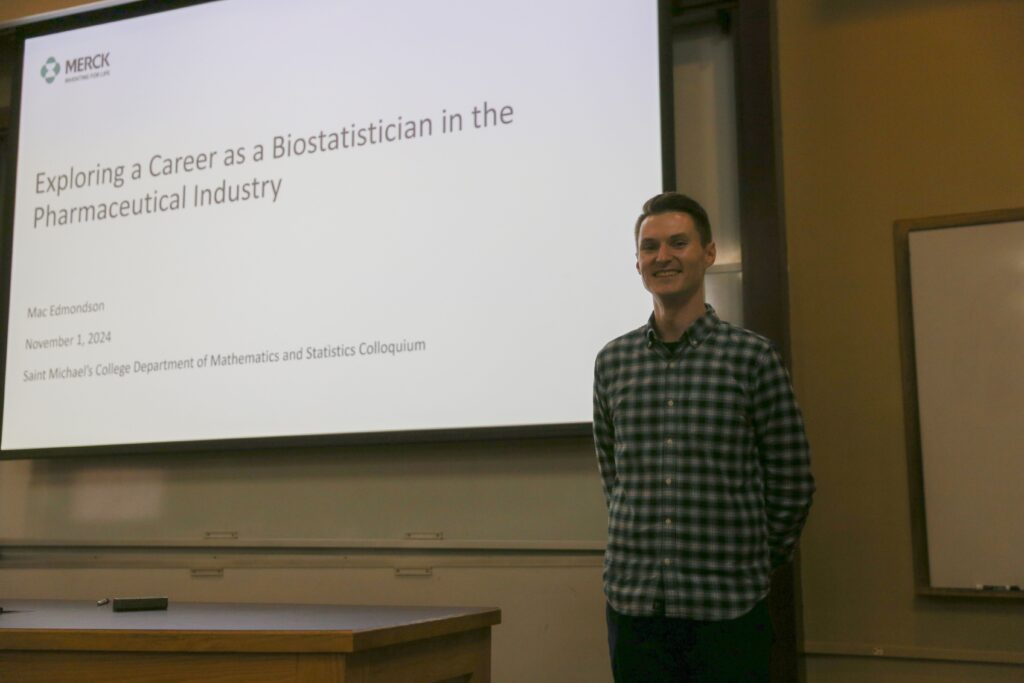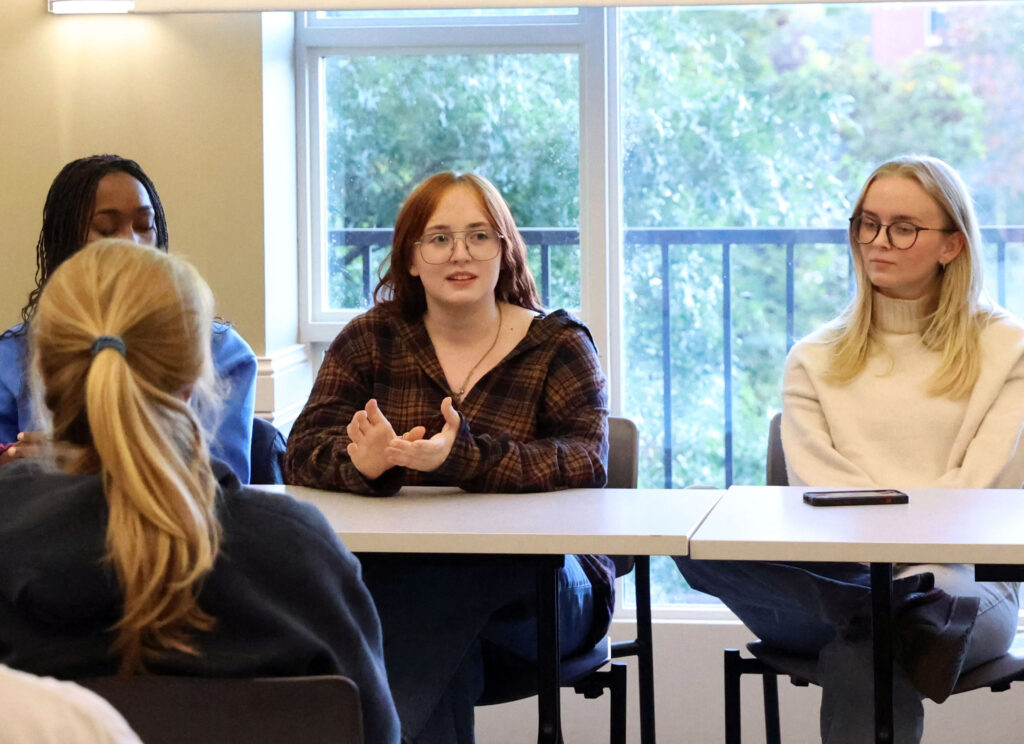Intern with nonprofit Rural Vermont taps family connections, faculty guidance for placement
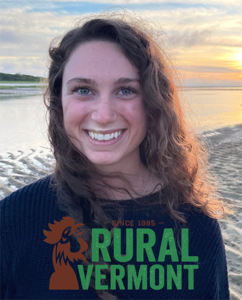
Gabby Doe ’23
Gabby Doe ‘23, a business major with an environmental studies minor from Barnstable, MA, is currently working as a marketing and operations intern at Rural Vermont, a non-profit based in Montpelier made up of farmers, farm workers, and members of the agricultural community. They work to enact policy change through advocacy and education.
“The non-profit is a resource for farmers to ask questions about policy in place for agriculture,” Doe said. Much of her work centers around participating in Rural Vermont events, which are often farm workshops related to agricultural topics such as slaughter, raw dairy, seed saving and other agriculture-related topics, she said.
Rural Vermont offers a membership service that starts at $35/year that allows members to vote in annual meetings, attend events for free or at a lower cost than the public, and also allows direct access to resources at the non-profit’s disposal, along with other benefits.
The organization hosts a virtual quarterly member forum where staff members recap what they are currently working on. Members are also able to introduce themselves and share their opinions on what is occurring in the agrarian community. The forums give members the chance to share the different policies on which they want Rural Vermont to focus.
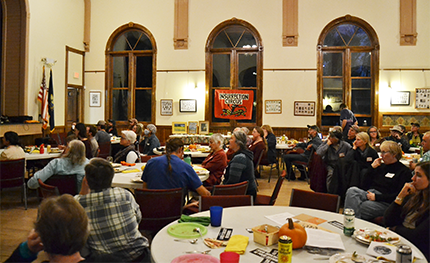
Rural Vermont members gather at a recent Annual Meeting Celebration.
The non-profit also hosts in-person events that vary. Annual meeting celebrations, free for members, consist of board member elections and a community dinner. “The meeting celebration held this year was partly to get everyone together after the pandemic. The celebration hasn’t been hosted in-person in years,” said Doe. “The non-profit is interested in community building and thanking members or individuals in the community.”
Educational workshops are another form of in-person events that the non-profit regularly hosts. “These workshops are generally centered around educating people on policy,” said Doe. Recently, Doe went to a Rural Vermont raw dairy workshop, which educated individuals on the process of taking raw milk from a cow and turning it into cheese, a method of preserving raw milk, said Doe. These workshops include a slew of different educational topics: some recently were farm slaughter, cannabis farming, local food cooking classes, farmworker healthcare webinars, and more.
Every day as a Rural Vermont intern is a bit different for Doe. She makes graphics for posters and social media posts, takes and edits event photos, makes phone calls and writes emails to invite members to upcoming events, and she writes summaries about past events for newsletters or email blasts as just a few of her duties.
Rural Vermont functions as a “sociocracy,” which means that the organization is composed of different groups, such as the policy group, the directing group, the financial group, and the board of members and directors. Instead of these groups functioning hierarchically, everyone reports to one another and meets within their respective groups. “This makes for a better environment for collaboration and communication,” said Doe.
“The office is not what you’d think of when thinking of a typical office,” she said. “It’s a single large room in the upstairs of a homeopathic doctor’s office. I mean, could it get more Vermont than that?” Additionally, Doe said that there are only five part-time employees at the non-profit aside from herself. The close-knit environment and the relaxed nature of the office make Rural Vermont a comfortable place to work, said Doe.
Faculty assist in landing a great placement
When Doe began looking for an internship to fill her experiential requirement for her business major, she knew that she wanted to find an opportunity that connected her interest in business with her interest in environmental studies. Doe said that she spent the entire summer looking for an internship and connected with people at places like Burton Snowboards, or NOFA Vermont. However, most of the people she connected with said that positions were already full or that they had not started considering fall internships yet. “It’s possible to start looking too early,” she said.
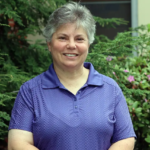
Karen Popovich
Doe reached out to Karen Popovich, professor of business administration and accounting, who helped her make some connections with businesses in the environmental industry. Doe urges students looking for internships to reach out to their professors for help when making connections.
Doe ended up at Rural Vermont due to her sister, a farmer based in Roxbury, VT, who aided her in making connections with environmental businesses in the state. “This internship isn’t something I would have found if I hadn’t reached out to my sister because they didn’t have any postings for internships on their website,” she said.
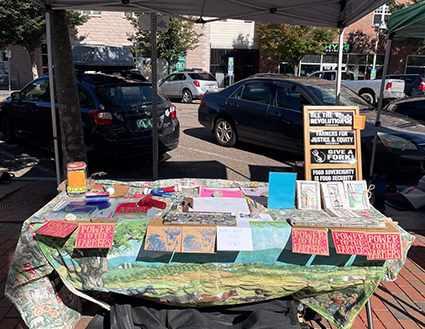
The non-profit’s table at the Winooski farmer’s market.
Doe recommends that students looking for internships should find businesses that they are interested in working with and reach out about the possibility of an internship. “Making connections and reaching out to people is really the best way to do it, and I think that holds true in the world of careers after college, as well,” she said.
Ultimately, Doe decided to intern at Rural Vermont because of the enthusiasm that her co-workers displayed when interviewing her for the position. “I’m super passionate about the work they’re doing and they have a lot of flexibility around what I could do, they really want me to learn,” she said. “I also really appreciated how passionately they spoke about the non-profit and the work they’re doing.
Doe urges other students to keep this in mind while looking for the best fitting internship. Doe said that it is important that the entity you intern for is just as excited about the opportunity as you are. “I want to be wanted where I’m working and feel valued,” said Doe.

For all press inquiries contact Elizabeth Murray, Associate Director of Communications at Saint Michael's College.
